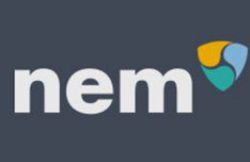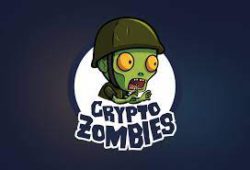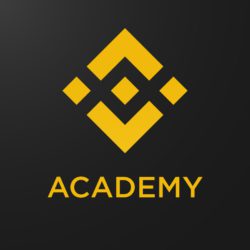Exploring The Potential Of Blockchain Gaming In Education And Training

Blockchain technology has been disrupting various industries, including finance, supply chain, and healthcare. Another industry that has been revolutionized by blockchain technology is gaming. Blockchain gaming has gained immense popularity in recent years, providing gamers with a new level of security, transparency, and ownership of in-game assets. However, blockchain gaming has vast potential beyond just entertainment. It can be an effective tool for education and training.
How will blockchain gaming in education and training change traditional methods of learning?
Education and training are vital to our personal and professional growth, and traditional learning methods have limitations. Classroom-based learning can be monotonous and unengaging, while e-learning platforms can be impersonal and uninspiring. Incorporating gaming and gamification techniques in education and training can make learning fun, engaging, and effective.
Blockchain gaming in education and training can be very helpful. Blockchain technology can provide an immutable and secure ledger that records a user’s progress and achievements, making tracking and rewarding users’ progress easier. Additionally, blockchain technology can enable the creation of decentralized learning platforms that provide users with greater control over their learning experiences.
Metaverses are used for various purposes, including social networking, online gaming, education, and training.
These are some Metaverse positions/roles in the ecosystem:
. 3D Game Developer
. AR/VR Software Engineer
. Digital Artist
. UI/UX Designer
. Blockchain Developer (2/2)— Developers in Vogue (@devinvogue) October 18, 2022
One of the most significant advantages of blockchain gaming in education and training is that it can help bridge the gap between theoretical knowledge and practical application. Blockchain games can be designed to simulate real-world scenarios and challenges, providing learners with a safe and immersive environment to apply their knowledge. This approach can be particularly useful in training fields such as healthcare, finance, and law, where practical experience is essential.
Another advantage of blockchain gaming in education and training is that it can help develop essential skills such as problem-solving, critical thinking, and collaboration. Blockchain games can be designed to require players to work together to solve problems, fostering collaboration and teamwork skills. Furthermore, blockchain games can be designed to provide players with real-time feedback, enabling them to identify their strengths and weaknesses and work on improving their skills.
Blockchain gaming can also be an effective tool for credentialing and certification. Blockchain technology can provide a secure and immutable record of a user’s achievements, enabling employers and educational institutions to verify their credentials easily. This approach can be particularly useful in industries that require formal certification, such as healthcare and finance.
Blockchain gaming in education and training has vast potential. It can provide learners with a fun, engaging, and effective way to acquire knowledge and skills. Blockchain technology can enable the creation of decentralized learning platforms that provide learners with greater control over their learning experiences. Additionally, blockchain gaming can help bridge the gap between theoretical knowledge and practical application and provide a secure and immutable record of a user’s achievements. As blockchain technology continues to evolve, the potential for blockchain gaming in education and training is only set to grow.
Here are five examples of blockchain gaming being used in education and training:
The NEM Blockchain Academy – The NEM Blockchain Academy is an online learning platform that uses blockchain gaming to teach people about blockchain technology. The academy’s courses are designed to be fun and engaging, and they use games and quizzes to help learners master the material.

MinecraftEdu – MinecraftEdu is a modified version of the popular Minecraft game designed for educational use. The game allows teachers to create custom lesson plans and activities that teach students about a wide range of subjects, including science, math, and history.

CryptoZombies – CryptoZombies is a blockchain game that teaches people how to code smart contracts. The game is designed to be both fun and educational, and it uses a series of interactive lessons to teach players about the basics of blockchain technology and smart contract programming.

The Binance Academy – The Binance Academy is an online learning platform offering blockchain and cryptocurrency courses. The academy uses a variety of teaching methods, including videos, articles, and games, to help learners engagingly understand complex concepts.

The IOTA Academy – The IOTA Academy is an online learning platform that offers courses on IOTA, a blockchain-based distributed ledger technology. The academy uses a combination of video lectures, interactive quizzes, and games to teach learners about IOTA’s technology and its potential applications in a variety of industries, including healthcare, logistics, and supply chain management.

Overall, blockchain gaming has the potential to be a powerful tool for education and training. Using games and interactive experiences to teach complex concepts, blockchain gaming can make learning more engaging and effective for students and professionals.
Also, read – A Special List Of The Best Games You Can Play To Earn
In conclusion
Blockchain gaming can potentially revolutionise how we approach education and training. By incorporating blockchain technology, these games offer a unique way of learning and training, offering benefits such as increased engagement, transparency, and immutability of records. As demonstrated by the various examples discussed above, blockchain gaming has already made significant strides in the field of education and training, and there is much room for growth and innovation. As the technology continues to evolve, we can expect to see more innovative use cases and applications of blockchain gaming in education and training. The potential impact on the future of learning and development is significant, and it will be exciting to see how blockchain gaming continues to transform the landscape of education and training.



























































